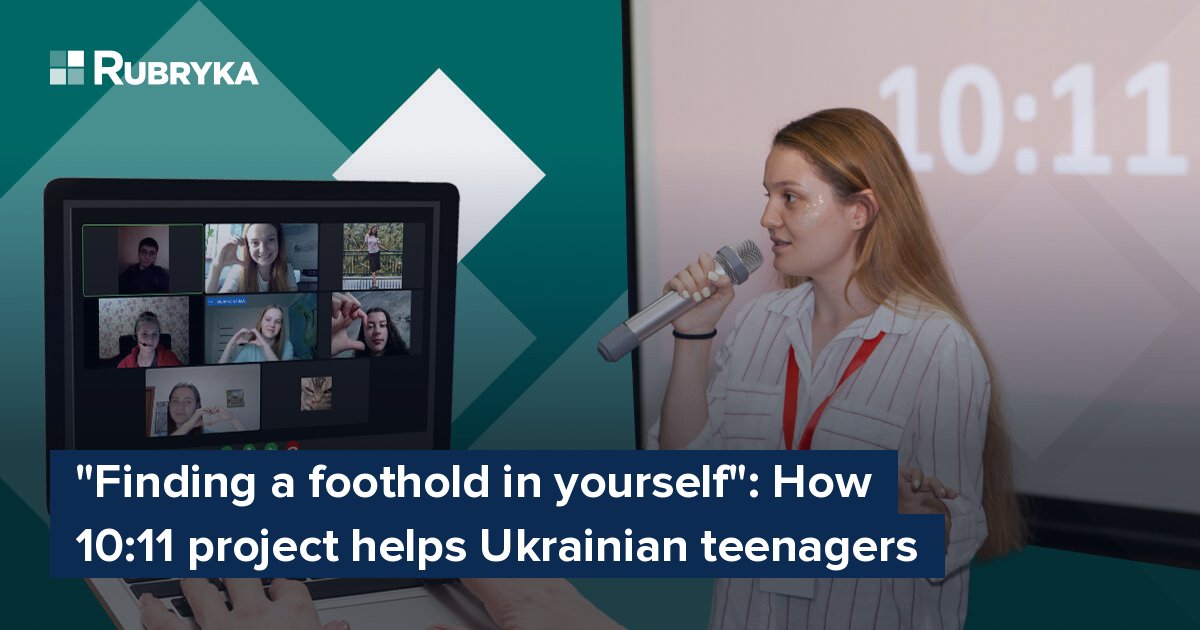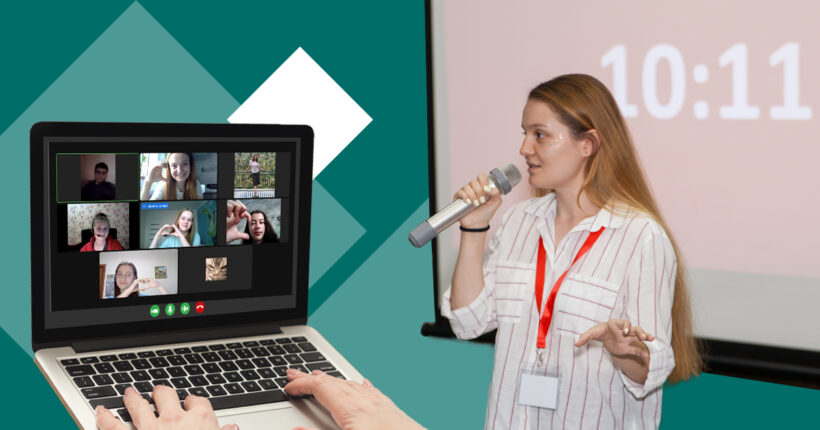
What do high school students get thanks to 10:11? How was the initiative built, and how did it win supporters among teenagers? In this Rubryka article, we spoke with the project's founder, Olia Ruda, mentors, and mentees.
Story of Olia from Velyki Mosty Town
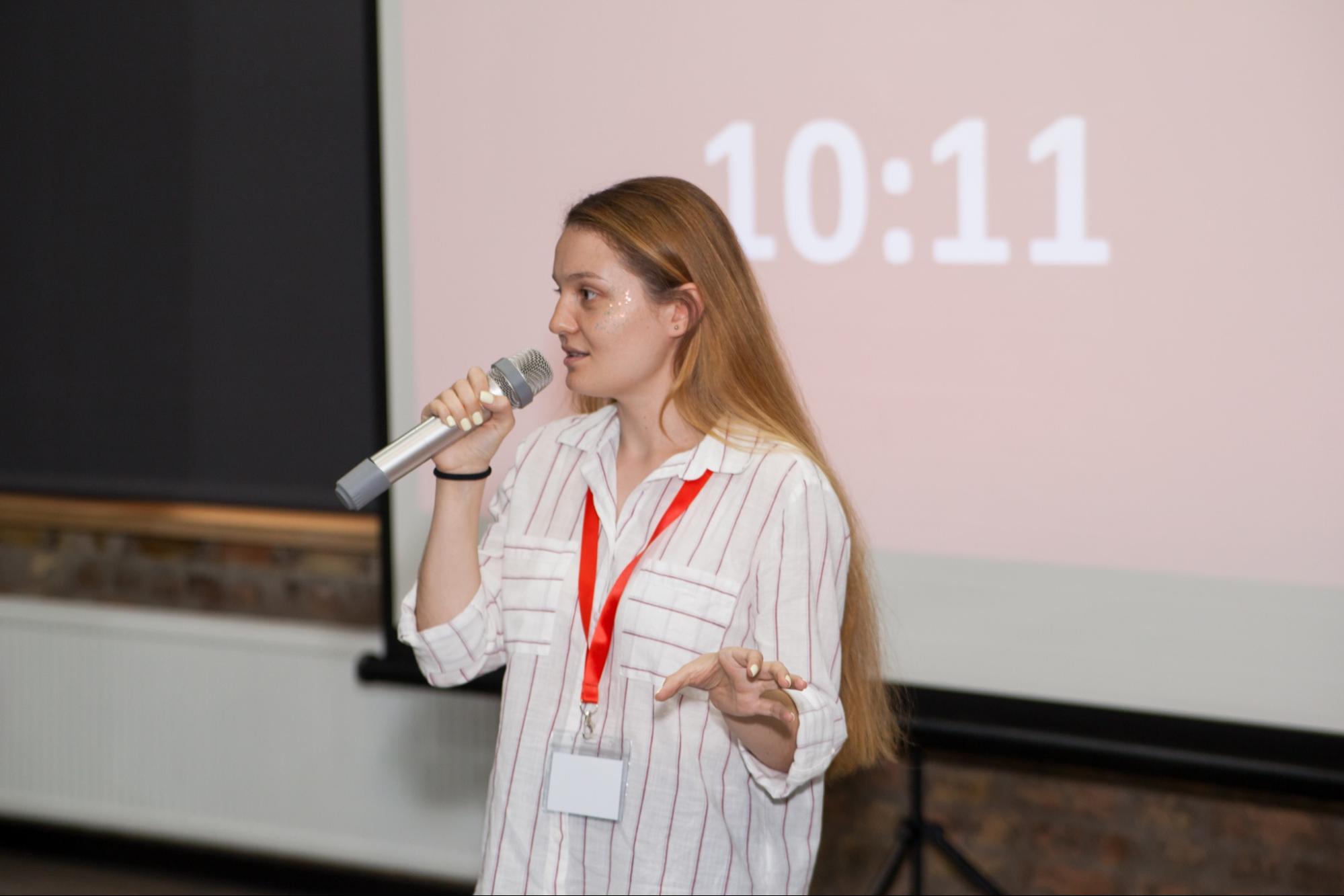
A small town in the Lviv region. The border with Poland is several tens of kilometers away. Olia Ruda grew up here among more than six thousand residents. Everything in her life was typical—studying in high school, friends—until a volunteer from the USA came to the town.
Joseph from the Peace Corps talked a lot with teenagers, taught English at Olia's school under the supervision of her teacher, organized a volunteer cleaning of the river bank, and once suggested that the children apply for the FLEX Future Leaders Exchange Program. It was an opportunity to go to the USA, study there at a local school, and gain experience. "Wow, such a thing exists," Olia Ruda recalls her first thoughts.
Of all those who applied, only Olia passed the program. She lived in America for a year. It greatly expanded her outlook, the woman says. "If it weren't for Joseph, who came and said that there's such an opportunity that would theoretically suit me… At the age of 10–11th grade, I lacked a person who would say, 'You can create something. You can try anything.'"
After returning from the States, Olia knew she would do her project. It would be something helpful for high school students. But there wasn't enough time: all my life was taken up by university studies and work.
"Later, while working at AIESEC, I learned to work with educational programs. I realized what young people wanted and what they lacked. When you are a high school student, no 17–25-year-old people are around you who can tell you what happens after school, at the next stage of life."
Olia recalls: when she entered the university, she had no idea what they were doing there. What is it like to go to seminars? What do people do during periods? Although it sounds funny now, it is a problem when you are 16 years old, Olia says.
"No one tells you that you can do interesting things besides studying. And these things can be more decisive for your life than when you sit in class and write everything down after the professor."
Yielding 10:11
10:11 didn't immediately become a personal mentoring program for high school students. In September 2020, Olia approached her school's teachers in Velyki Mosty with an offer to do a project for high school students. At first, these were meetings in Zoom once a week, where Olia and the teenagers discussed what was bothering them.
"They asked more about studying at the university. How to choose a profession? What university to join? After that, they moved on to other topics. Girls and boys were interested in how a teenager could earn money and how to create their businesses. Then we explored the concept of media literacy and discovered digital products for learning," says Olia Ruda about the first steps of 10:11.
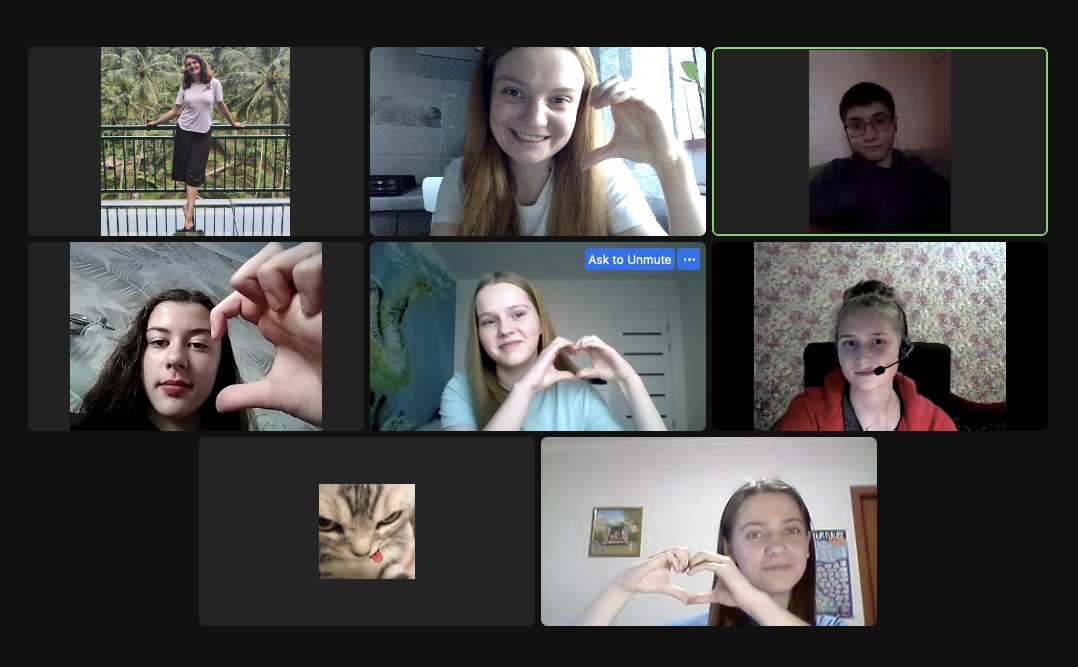
There were 15 people at the first online meeting, and in a few weeks, there were 30. Olia says that word of mouth worked. After some time, the founder of 10:11 wrote a post on her social media about her project. In the comments, followers began to ask: "Is there a way I can get involved?"
"Then I began to realize that almost everyone had difficult teenage years. But I had absolutely no idea what I could offer these people other than inviting them to our meetings as experts."
The topics of the invited experts were different: hitchhiking, admission to the Ukrainian Leadership Academy, and financial literacy. It was a pleasant surprise for Olia that more people gathered for these meetings than usual.
"Why not invite teenagers to go to a 1-on-1 format?" Olia, who already had experience in creating mentoring programs, thought after some time. The group doesn't always have an opportunity to ask questions that confuse the teenager. They may not want to discuss painful life problems.
Out of a group of 30 people, 12 teenagers agreed to personal mentoring—a little less than half. They started working in pairs.
"Somewhere in March 2021, it became clear that personal mentoring is super cool. It was built on one-on-one calls, where teenagers could discuss their needs. Looking for their strengths and weaknesses with a more experienced person was easier for them."
Olia made a feedback form for mentees. The answers clearly showed that the most valuable thing that mentors give to teenagers is time and attention.
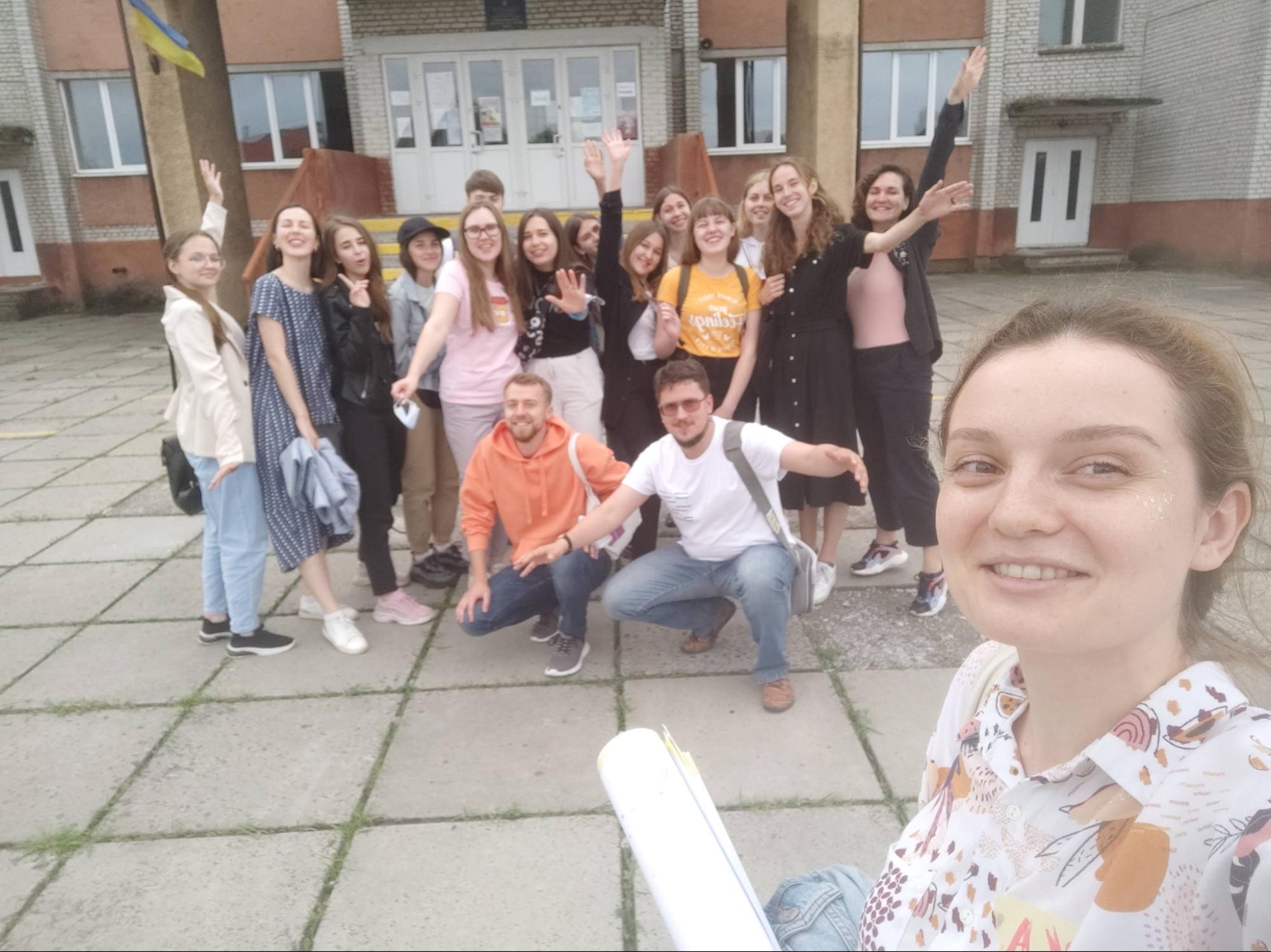
Offline meeting of mentors and mentees in Velyki Mosty in the summer of 2021
"My fear retreated": Olia Nechyporuk
Olia Nechyporuk became one of the first mentees of the project. She was 15 years old then and studied in the 10th grade. She learned about 10:11 from the teachers who advised her to apply for the program.
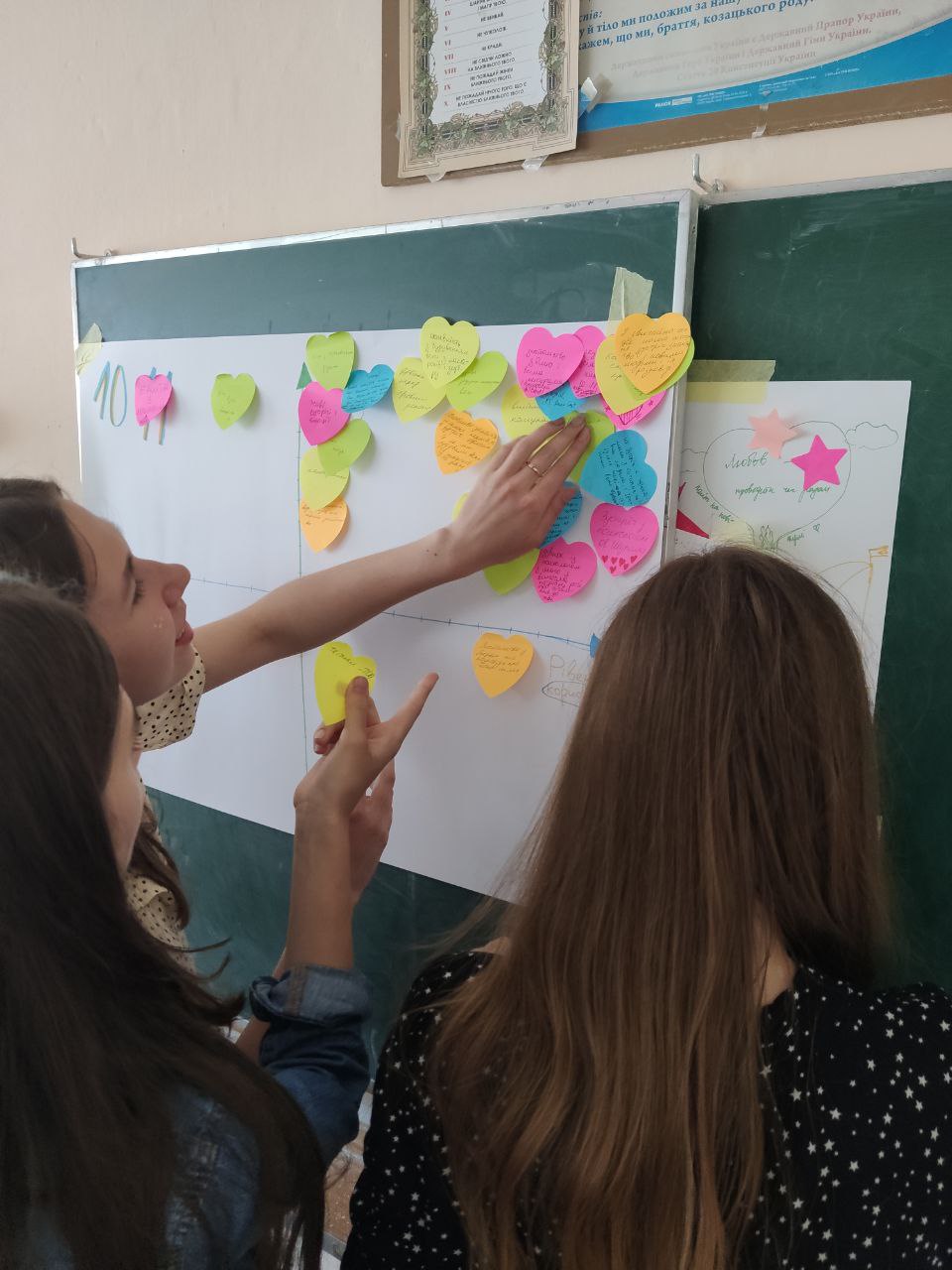
"I was worried because I didn't have clear goals. It is unclear where to go, what to read, and what to do. I wanted to find the specifics," says Olia Nechyporuk.
Maryna Smahina, a senior editor of Rubryka, became the girl's mentor. Before the first meeting, Olia was tormented by asking, "What will she think of me?"
But the girls quickly found common ground. "I would never have thought that the difference of 10 years would be imperceptible. I did not feel any superiority toward myself. I talked to Maryna as if she were an acquaintance my age," says Olia.
The mentor set out to help her mentee overcome the fear of public speaking. The girls worked on this challenge for a month: they exchanged valuable materials and communicated. "And somehow, in a month, we developed a plan for a public speech and came to conclusions. My fear retreated."
Currently, Olia Nechyporuk is already a student at Ivan Franko Lviv National University. The girl says that every time she speaks in front of the public, she remembers her experience: "Thanks to our work and trust in each other, I was able to overcome my fear. Now, every time I have to speak in front of a large audience, I immediately remember Maryna, and the fear goes away if it appears again."
"For the mentee and me, it was a wow opportunity": Roman Tymotsko
The Head of Stroom Digital agency Roman Tymotsko was one of the first mentors of 10:11. The man wanted to help his friend Olia Ruda. Moreover, Roman is a plastoon. For most of his life, he had mentors, and as a teenager, he became a mentor for children.
"Mentoring is a kind of friendly communication with someone younger than you and with a little less experience. This is a great opportunity to package your experience in an understandable form, to give different insight —something you don't think about at 15–16 years old," says Roman.
Roman's first mentee, Antonii, dreamed of working in the space industry. The request to the mentor was as follows: help with admission to the university. Together, the guys compiled a list of 7–10 educational programs and analyzed their pros and cons to make it easier to choose later.
"Through Plast, I managed to arrange a meeting with a SpaceX engineer. It was a wow opportunity for my mentee and me. I didn't believe until the end that everything would work out. The most convenient time for online communication happened when I was a best man at a friend's wedding. Therefore, I had to properly dose the wine to stay sober enough at the meeting. But everything worked out: the meeting was cool. We talked to the man who launched Starlink into space. The engineer told me about his way to this company, the intricacies of the work," says Roman.
Thanks to this meeting, the path to the final dream point for the mentee didn't seem like science fiction. It was clear what steps the mentee needed to take, what skills he would need in the future, what he should be interested in, and where to practice.
Start of 10:11 national mentoring
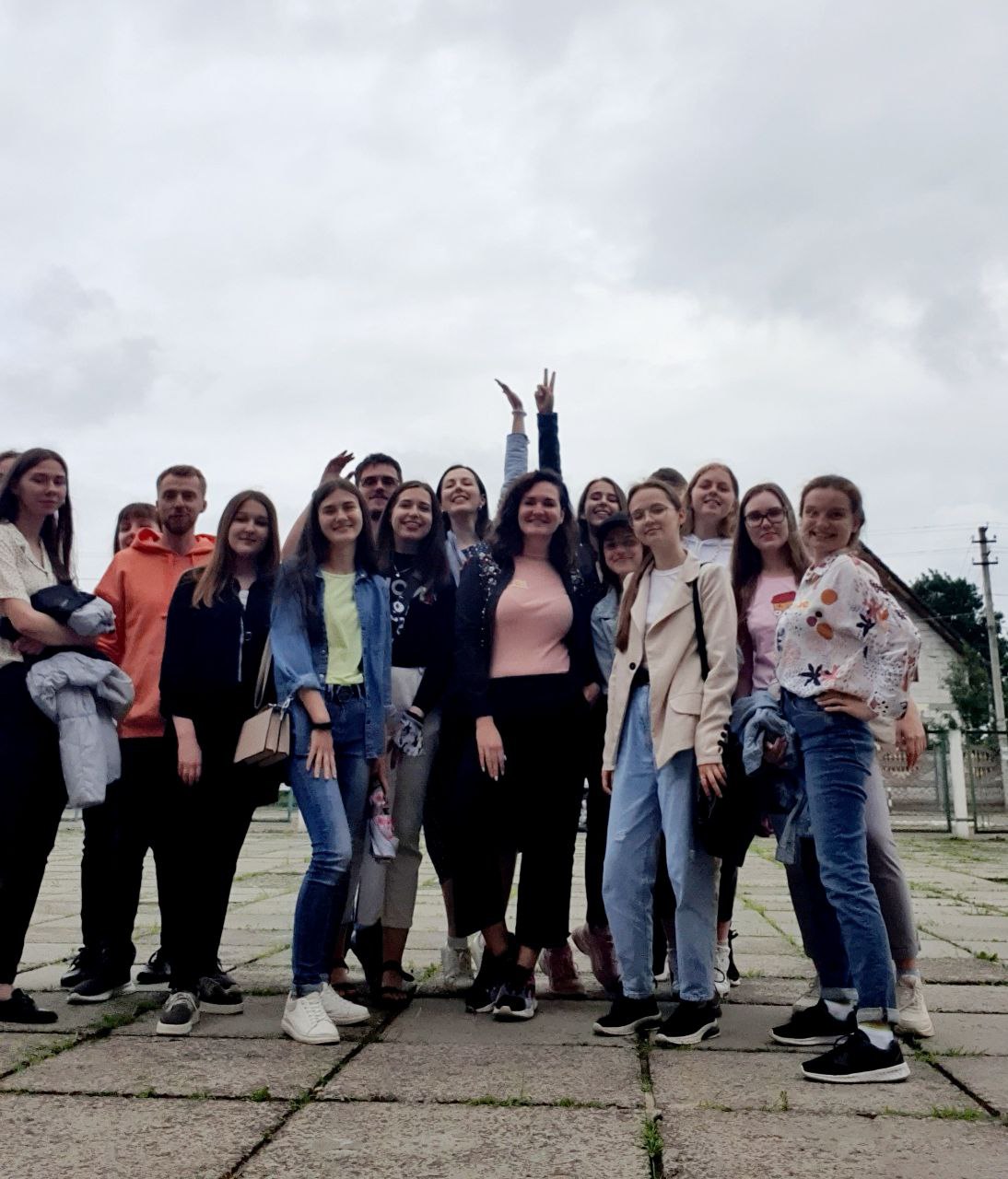
Reading such feedback from Roman and his mentees, Olia understood she needed to promote personal mentoring, not only for teenagers limited to one school or small town, but to scale the program to the entire country.
"I work on 10:11 in my spare time. Earlier, it was difficult to pick up ten pairs, and there should have been several times more of them. There was no time anyway, and it required a lot of resources," says Olia.
But everything changed after russia's full-scale invasion. A few weeks before February 24, Olia Ruda realized that 10:11 was very important to her, so she decided to take a gap—a half-year break, which she will fully devote to her project. But Olia managed to stay there for only two weeks. "Fantastic two weeks," says the woman. After that, russia's full-scale invasion of Ukraine began. Because of everything around her, the woman fell into limbo for two months.
10:11 during full-scale war
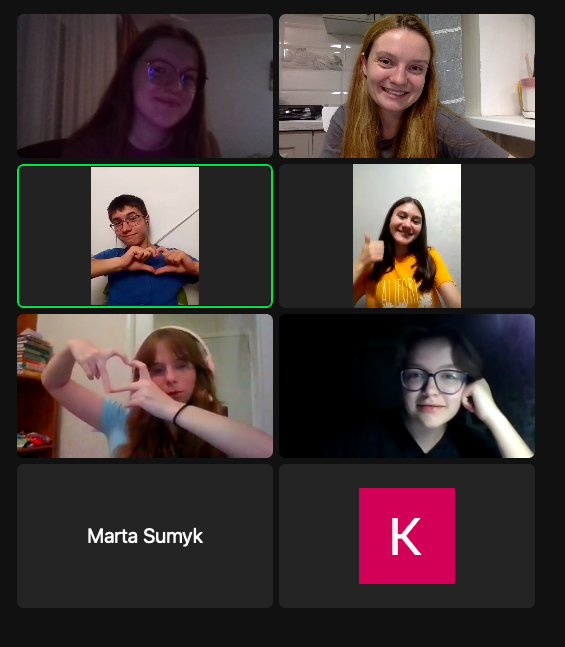
"It wasn't until a few weeks after February 24 that I started returning to our work chats. I asked people how they were and what they were doing. I watched what was changing for high school students because of the war. But everything was different there," says Olia.
New problems were added to the ones that high school students had. Teenagers were forced to leave their hometowns. They didn't always have the opportunity to enter the university of their dreams. Moreover, all of them experienced a high level of stress.
"The psychologist told us that it can be more difficult for high school students during the war. They are old enough to understand what is happening and why. But at the same time, they do not have autonomy or levers to influence their decisions or lives. It's super frustrating: you want to, you understand everything, but you can't quite do anything about it. The war forced many teenagers to grow up severely," says Olia Ruda.
Then the woman decided to offer the teenagers what she could—mentoring, but on a national scale.
Then, 10:11 had a community of several dozen mentors, but there should have been more. "About 80 new mentors applied to us. And a problem appeared. I knew those people who were with us before. And then completely unfamiliar mentors came: who are they, with what goals did they come to the project, what experience do they want to pass on?" the founder of 10:11 recalls.
For those who passed the selection, 10:11 created a course on mentoring (this was spring 2022). In the class, the participants talked about the psychology of teenagers, how to communicate with high school students, and not to impose their experiences.
And then, 10:11 launched a call for mentees and received more than 100 applications. But, as Olia says, many teenagers did not understand what this project could give them. Most of them came for something new and exciting but completely unexplored.
In July, 60 "mentor-mentee" pairs started their work. They worked together for three months. "Now it is clear that it helped many high school students to gain more clarity and awareness in life—to find a foothold in themselves, some internal levers, opportunities you can rely on," says Olia Ruda.
"I got +1 cool person in my circle": Kateryna Zhuchenia
The project manager of the Happy Monday career portal Kateryna Zhuchenia was one of the 60 mentors who started work in July. The woman was interested in trying herself in a new role, although she had been even a little afraid of working with teenagers because of the stereotypes imposed by society.
Before the first meeting, Kateryna was worried that the mentee would ask questions to which the woman wouldn't have an answer.
"Or that I'll give tools, and they will not work. Or that we will move somewhere, but as a result, we won't get there, and we won't meet our expectations. Or that the mentee will turn out to be very, very active, and I miscalculated my strength, and I won't have the resources to give them as much time as they need," says Kateryna Zhuchenia.
But none of these fears justified themselves. The girls immediately managed to establish contact. They live in the same city, so they had the opportunity to meet offline. There were no communication difficulties.
The Happy Monday project manager says that her participation in 10:11 gave her a lot: the project helped highlight her strengths and weaknesses both as an individual and as manager-leader, brought new interests (with the mentee's help), and strengthened the belief that there are many engaging, wise, conscious high school students.
"I improved my long-term planning skills, setting goals, and tracking another person's progress. I understood better how to build a mentee development plan according to their request and how not to do it. I got +1 cool person in my circle—I'm talking about a mentee—with whom you can go out for coffee, go to a cultural event, and talk about work-professional and personal things. I joined the community of super experts—other project mentors," says Kateryna Zhuchenia.
Also, in three months, Kateryna became convinced that mentoring is her thing, and this format of interaction with others is comfortable for her.

"You can always do something else": Maria Shevchyk
16-year-old Maria Shevchyk became one of the mentees of the 10:11 national wave. The girl lives in the village of Dubove, Volyn region. When she heard about the mentorship project, she decided to apply because she couldn't decide on her future profession. The girl was finishing the 10th grade and entering the 11th grade.
"I came to the project with a professional request—admission to the university, exams, and choosing a profession. As a child, I wanted to be a veterinarian or a teacher. But I grew up, and my wishes also changed. My mentor more or less helped me choose the field where I want to work," says Maria.
Together with her mentor, the girl singled out three areas close to her: pedagogy, philology, and computer science. She says this simplifies her life because before, she had no idea what would happen next.
But the main discovery for Maria was that it is possible to change professions and jobs in life:
"I used to think I would study and work at one job for 35 years. But thanks to the mentor, my beliefs changed. He said that I could take up any business that motivates me. And that's okay."
Helping 10:11
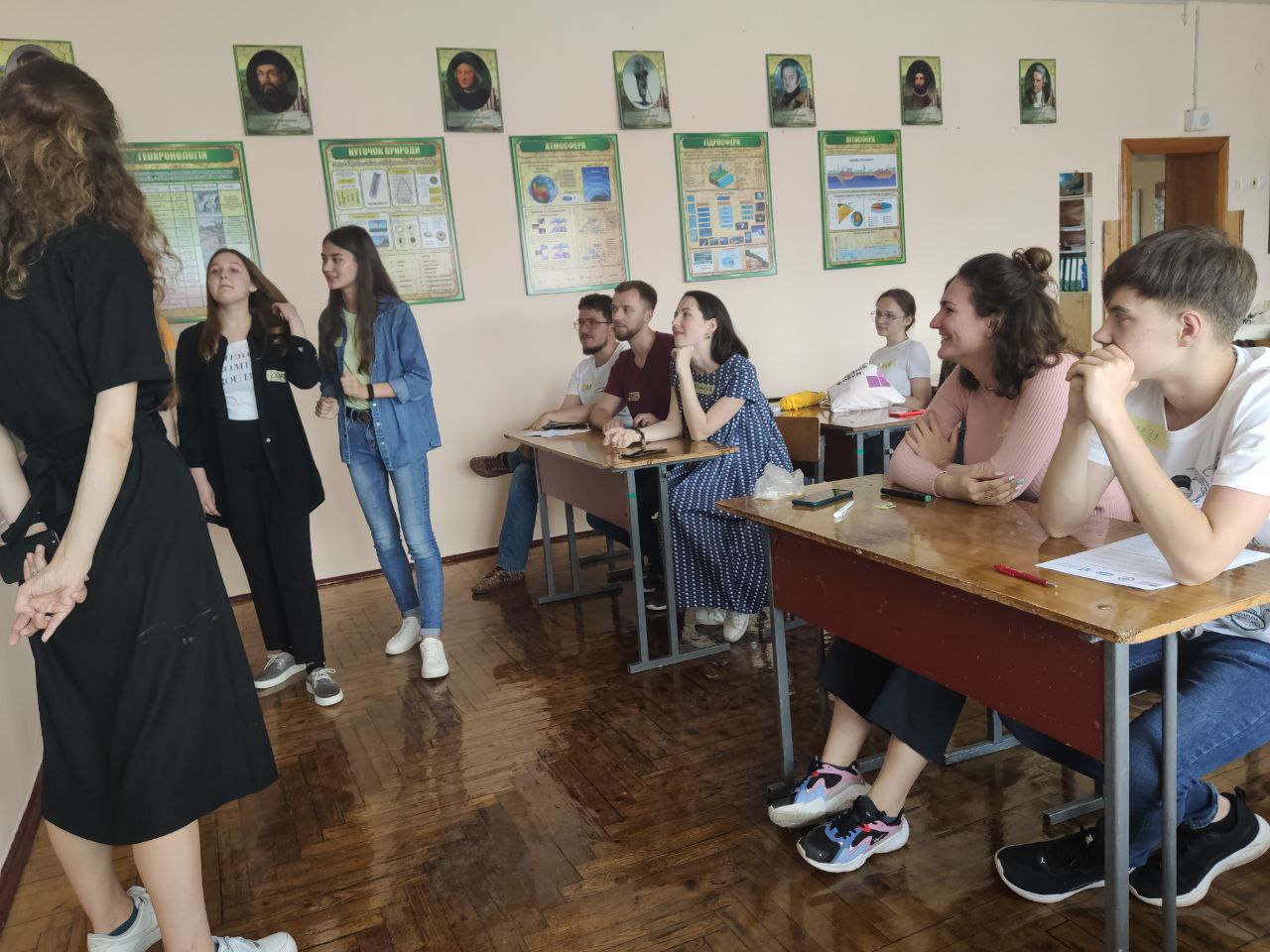
In two years, 104 teenagers went through personal mentoring. Now begins the 10:11 second national wave with 55 pairs.
Now 10:11 is groping for their added value. The organization received a request to build a mentoring program and train mentors for other companies. Olia is convinced that this will help the project to support itself in the future.
It's easy to help the project, says Olia Ruda. First, you can become its mentor. But there are criteria: age from 20 to 30 years (so that they are closer to high school students in terms of experience), active during their studies in higher education, participation in various events, volunteering, and a level of English of at least B2 (because many educational materials in the course are in English).
Second, it is financial assistance. So far, 10:11 is more about volunteering. During its existence, the project received only one grant: it was acquired by Olia as a graduate of FLEX. She spent the money on applications to run the program, paid for merch (it was essential to give something to people), and organized an offline meeting in Velyki Mosty in the summer of 2021.
And 10:11 has a Patreon. Through the platform, everyone can join in helping Ukrainian teenagers.
Newsletter
Digest of the most interesting news: just about the main thing



